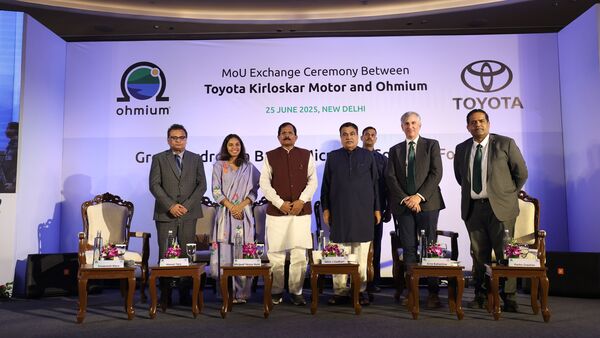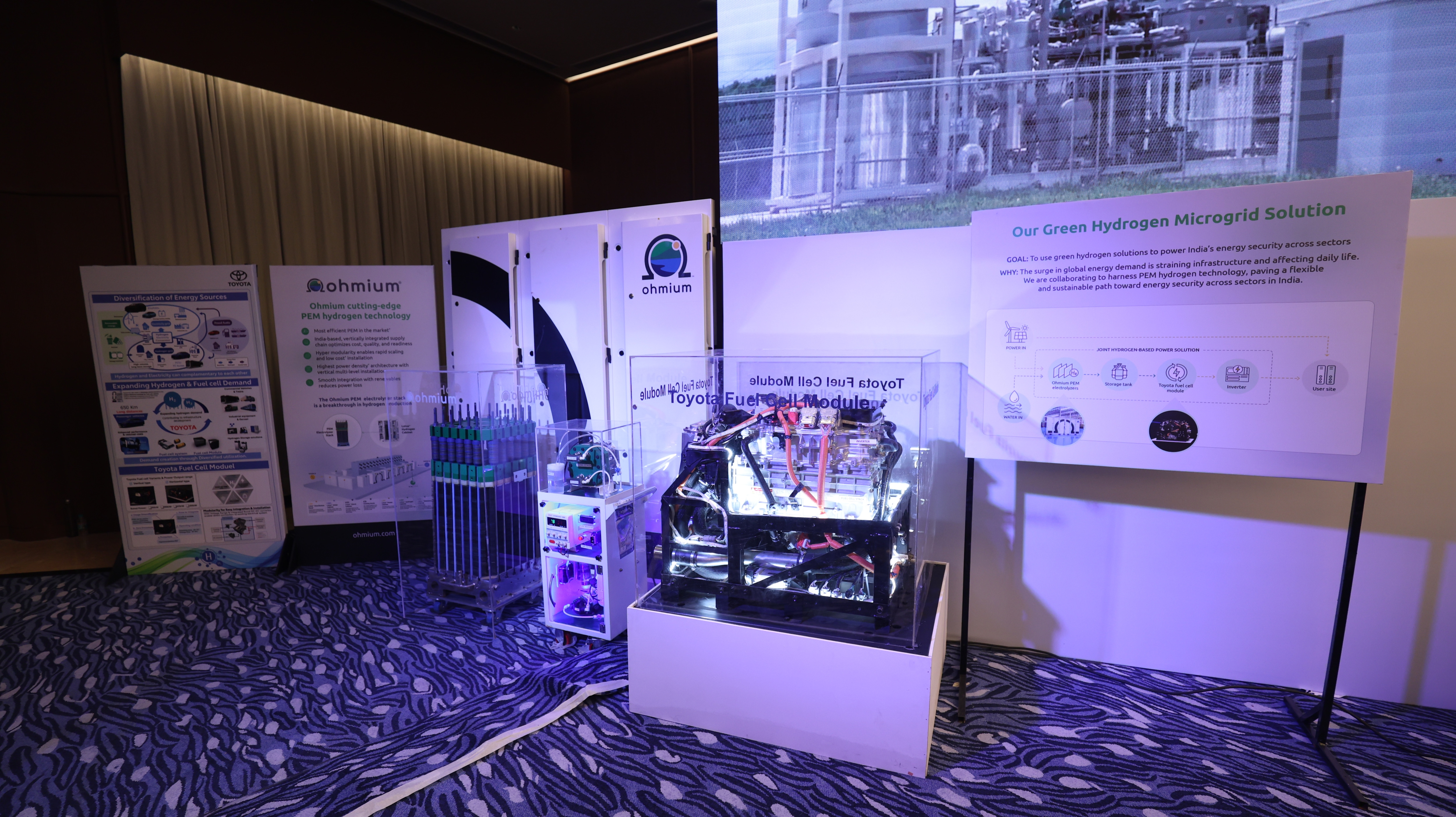Under the project, Toyota Kirloskar Motor and Ohmium will design and evaluate the performance of hydrogen-driven microgrid prototypes suitable for real-world use.

In a major step toward decarbonization and energy independence, Toyota Kirloskar Motor (TKM) has entered a strategic partnership with Ohmium International, a Bengaluru-based specialist in PEM (Proton Exchange Membrane) hydrogen technology. The two companies signed a Memorandum of Understanding (MoU) to co-develop integrated green hydrogen power solutions tailored for the Indian context.
The project demonstrates Toyota’s growing emphasis on developing clean energy technologies and supporting India’s vision of a hydrogen and carbon-free future. The MoU was also positively received by important government officials in India. Union Minister Nitin Gadkari endorsed the initiative, describing hydrogen as a clean and renewable source of energy that is viewed as fuel of the future.
Also Read : Toyota unveils portable hydrogen energy cartridge. Can this be a game-changer?
It is a key to building a self-reliant and carbon-neutral India. “I commend Toyota and Ohmium for making strong efforts with cleaner energy options through advanced hydrogen-led capabilities,” he added. Shripad Yesso Naik, Minister of State, Ministry of New and Renewable Energy, said, “Strategic collaborations such as this, between Toyota Kirloskar Motor and Ohmium, have the potential to significantly accelerate the progress towards a hydrogen-powered green energy future.”
Toyota’s expanded vision: Fuel cell technology beyond cars
Toyota, known globally for pioneering fuel cell electric vehicles (FCEVs), is now leveraging its expertise in fuel cell modules to support India’s stationary energy needs. Under the MoU, TKM will supply advanced fuel cell modules, offer system integration, and provide technical consultation.
Ohmium, a leader in PEM hydrogen electrolyzer technology, will design and evaluate the performance of hydrogen-driven microgrid prototypes suitable for real-world use. Manasi Tata, Vice Chairperson, Toyota Kirloskar Motor, stated that through this collaboration with an innovative PEM technology player like Ohmium, the company is not only advancing hydrogen applications but also reinforcing its support for the country’s ‘Make in India’ initiative.

In 2022, TKM was introduced to the green hydrogen sector in India with the launch of the Toyota Mirai with iCAT. This was a pilot project to create public awareness and establish knowledge on hydrogen technology in the mobility sector. In 2023, TKM collaborated with Ashok Leyland to develop fuel cell modules for trial hydrogen fuel cell commercial vehicles.
This alliance is yet another development in Toyota’s people developed program to aid India’s decarbonisation objectives via its multi-pathway approach which favours hybrid electrification and ethanol-blend technologies. In August 2023, TKM was also able to showcase the world’s first BS 6 (Stage II) Electrified Flex Fuel Vehicle concept on the Innova Hycross platform with a varied clean energy policy
Toyota and Ohmium are both motivated by working toward practical, scalable and sustainable hydrogen energy solutions that are tailored to India’s energy needs – in transportation and myriad pastures.
Also Read : Hydrogen fuel of future, vehicles to run on green fuel in coming years: Gadkari
Aligning with national hydrogen goals
India has ambitious energy targets: energy self-reliance by 2047 and net-zero by 2070. India wants to establish a strong hydrogen economy, based on domestic R&D and commercial partners, under the National Green Hydrogen Mission launched in 2023.
TKM and Ohmium’s partnership clearly exemplifies this national vision. The partnership, using microgrid based solutions, is addressing the country’s acute energy shortages in remote and industrial areas while avoiding fossil fuel-based energy.
Get insights into Upcoming Cars In India, Electric Vehicles, Upcoming Bikes in India and cutting-edge technology transforming the automotive landscape.
First Published Date: 26 Jun 2025, 09:29 AM IST







